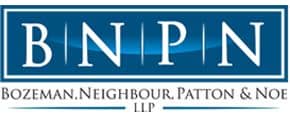Protesting Unemployment Benefits in Illinois When Employee Discharged for Misconduct
To help keep their unemployment insurance rates at a low level, employers may sometimes challenge claims for unemployment benefits filed by their former employees. This can be accomplished by filing a protest with the Illinois Department of Employment Security (IDES) after the employer receives a Notice of Claim. Protests are not advisable in many situations, however, and are usually only available if the former employee was terminated for "misconduct connected with his or her work." Misconduct does not apply to all situations where an employee is fired, and can be difficult to prove.
The Illinois Supreme Court recently clarified that to prove misconduct, an employer must prove the employee either (1) deliberately violated an express rule or (2) engaged in conduct that was otherwise illegal or would constitute an intentional tort.
In Petrovic v. Department of Employment Security, 2016 IL 118562, the Plaintiff was an employee of American Airlines, and was discharged after she procured a free bottle of champagne and upgrade to first class for a passenger. American's discharge letter stated that Plaintiff violated two workplace rules. However, when American protested Plaintiff's claim for unemployment benefits, American did not allege that Plaintiff violated any specific rule. At the hearing before the unemployment Board, American's representative testified that he did not have any direct knowledge of Plaintiff's violation, and just testified that Plaintiff generally violated American's policies and procedures. In contrast, the Plaintiff testified that she did not know of any express rule forbidding upgrades, and that she had done so in the past.
The Board denied Plaintiff's unemployment benefits based on employee misconduct, reasoning that giving away champagne and a free upgrade was obviously wrong that American need not have a rule expressly covering it. The Illinois Supreme Court disagreed. It stated that the Unemployment Insurance Act requires evidence of a deliberate and willful violation, meaning that the employee must know that her acts are wrong to constitute misconduct. Thus, the employer needs to prove the employee violated a rule or policy, and that the rule or policy had previously been communicated to the employee. The Court rejected the position that employees should have a "commonsense realization" of whether their acts are misconduct. If the employee did not knowingly violate a rule, it does not constitute misconduct unless the employee's acts were criminal or would constitute an intentional tort.
The Petrovic decision illustrates two important points for employers who have cases of misconduct before the IDES. First, employers seeking to prove misconduct should clearly identify that the employee violated a workplace rule, and that the rule had previously been communicated to the employee. Second, employers in proceedings before the IDES must be prepared to present "legally competent" evidence that the employee violated a rule or policy, and cannot rely on hearsay or witnesses who lack knowledge.
In addition to the general definition of misconduct, changes to the Unemployment Insurance Act went into effect in January 2016 setting forth specific instances of misconduct. 820 ILCS 405 /602(A). If an employee's misconduct meets one of the statutory definitions of misconduct, then apparently there is no need to prove a deliberate violation of an express rule.
These specific forms of misconduct that disqualify a former employee from receiving unemployment benefits include:
· falsification of employment applications or other documents,
· failure to maintain required licenses or certifications,
· knowing and repeated violations of attendance policies,
· gross negligence that damages the employer's property or endangers others, or
· alcohol or illegal drug use while at work.
If you have further questions about your workplace policies or procedures in this area, please contact one of the Employment or Business attorneys at Bozeman, Neighbour, Patton, & Noe, LLP.


